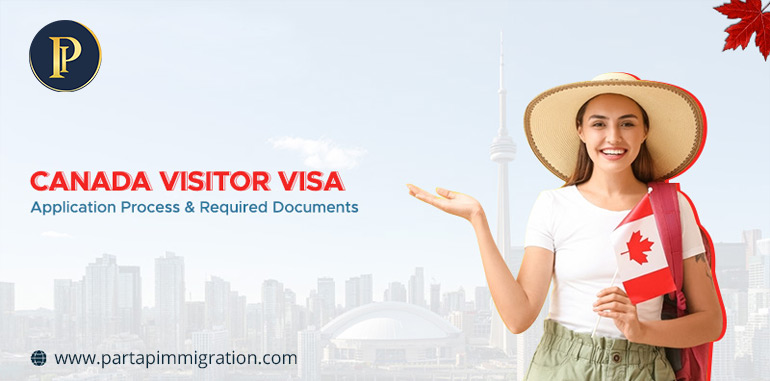Visitors arriving by land or sea
Visitor Visa
- Home
- Visitor Visa

Visitor Visa
Canada welcomes millions of temporary residents (non-immigrants) each year. People enter Canada as tourist. Some enter Canada to reunite with their family and friends while others come to explore this wonderful country. A temporary visit to Canada is a perfect opportunity for them to consider their immigration options in order to make Canada their permanent home. Over the last few decades, Canada has become a more popular destination for tourists and business travelers from an expanding range of nations.
If you wish to enter Canada for a temporary purpose such a vacation or to visit family or friends, you may need a Temporary Resident Visa (TRV), unless you are a citizen from a “visa exempt” country. TRV is a document issued by a Canadian Immigration Visa Office outside of Canada, stating that the holder has met the requirements to enter Canada as a visitor. TRVs can either be for single entry or multiple entry. Most visitors can stay for up to six months in Canada. Temporary foreign workers (TFW) and international students are admitted for varied period of time, as determined on a case-by-case basis.
Who do not require a TRV (visitor visa)?
Foreign nationals who are not Canadian citizens or permanent residents and do not require a Temporary Resident Visa (TRV) to enter Canada are considered citizens of visa-exempt countries. Canada has established agreements with several countries that exempt their citizens from requiring a visa to enter Canada for a maximum of six months. However, it's important to note that foreign nationals from visa-exempt countries who plan to visit Canada by air must have a valid electronic travel authorization (eTA).
Exemptions where an eTA is not required
-
-
Permanent residents (however, they need to travel with their permanent resident card)
-
Citizens of the United States of America
-
Travellers with a valid Canadian visa
-
Passengers on a flight (because of an emergency or other unforeseen circumstance that makes an unscheduled stop in Canada)
We stand for quality; safety & credibility, so you could trust us fully about the government and our working process.
How to apply for a temporary resident visa (TRV)
Individuals can submit either an online application or a paper-based application. If you are traveling as a family, each member must complete their application. In the case of a minor, the application must be filled out by parents/legal guardian(s). However, all the applications must be submitted at once.
Once you apply, the Visa Officer may instruct you to provide your biometric data at the authorized Visa Application Center (VAC).
When evaluating your application, Immigration, Refugees and Citizenship Canada (IRCC) will take a number of considerations into account. Every case is unique based on your circumstances, but generally following factors are considered:
Connections to home country
This is one of the main tests in issuing a temporary resident visa to the applicant. Will the applicant return to his/her country after the authorized stay in Canada? The visa officer will investigate the applicant’s socio-economic commitments to his/her home country. Having an employment, business, family, property, obligations, and previous travel history can positively impact your application.
Supporting yourself in Canada
It is also essential to demonstrate how you plan to support yourself while you are inside in Canada. You may need to provide invitation letters from friends or relatives in Canada, travel insurance, hotel reservations, and an adequate amount of money in your bank account to support yourself during your stay.
Extending your visitor status in Canada
Foreign nationals can lawfully reside in Canada for a maximum of six months at a time with visitor visas. The person's legal status will expire at the end of this time, and they will have to depart Canada. If a person wants to stay longer than six months, they must apply while they are still considered temporary residents. At least thirty days prior to the expiration of your status, you should request an extension. You may stay in Canada while you wait for a decision on whether your existing visa expires while your application for an extension is still being processed. We call this an implied status.


